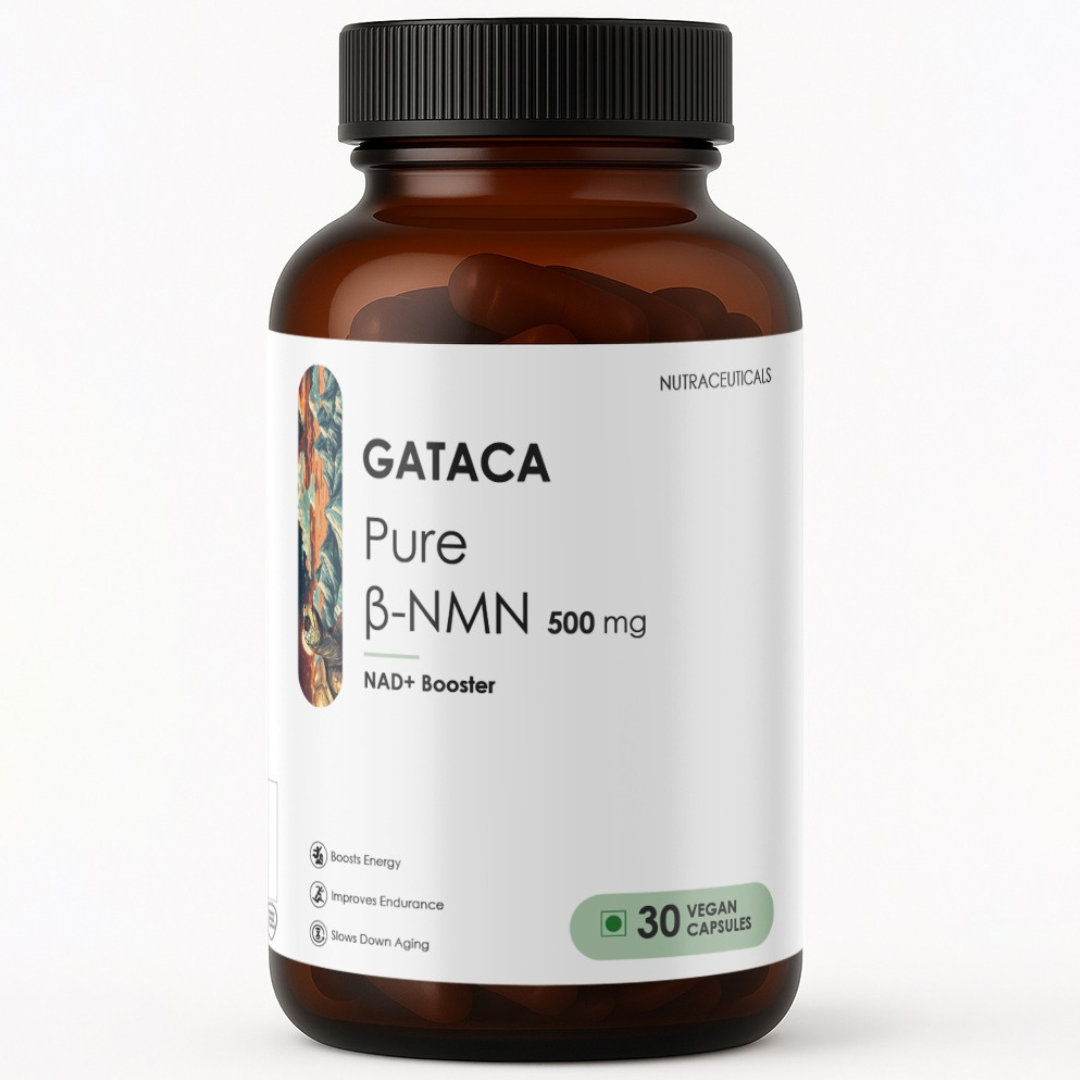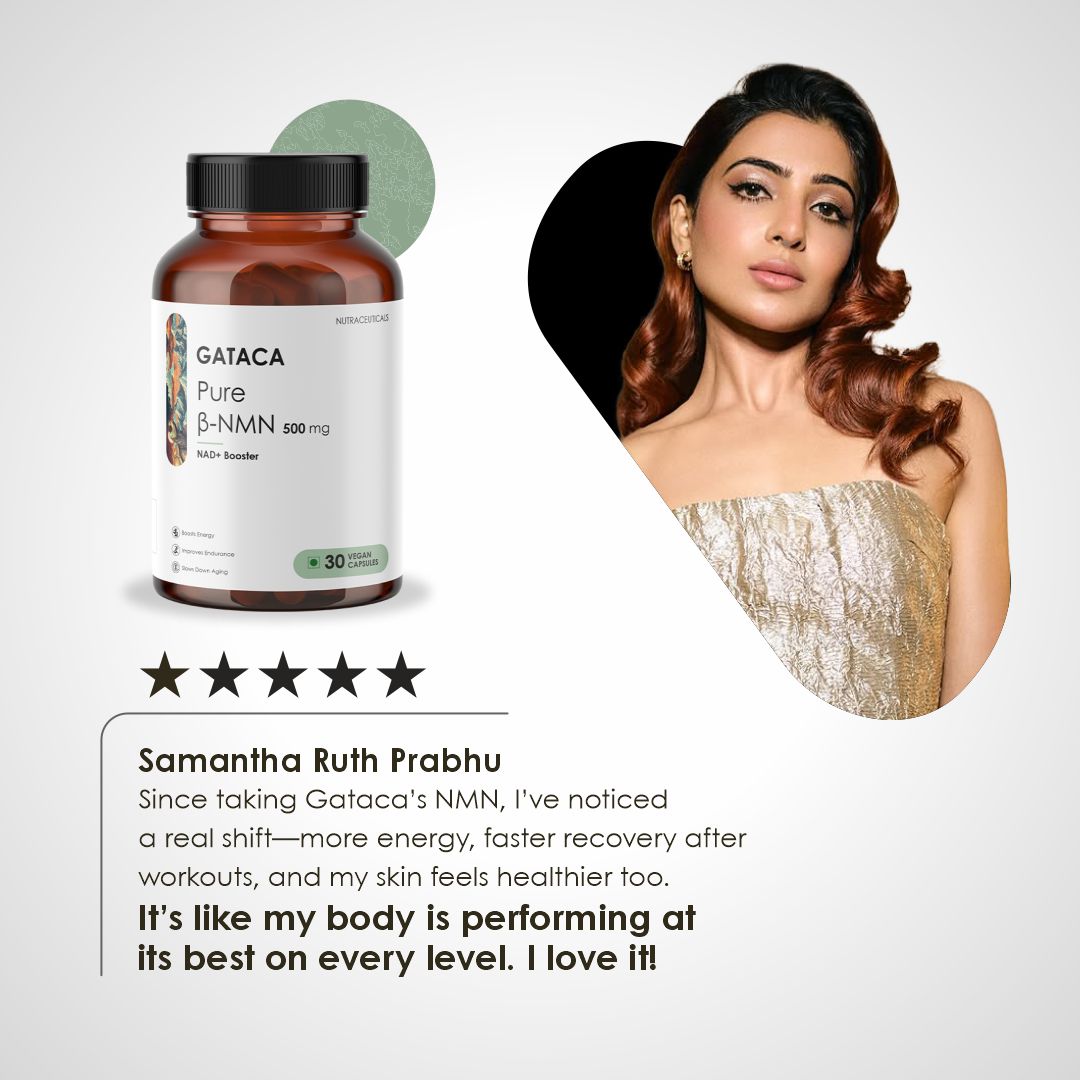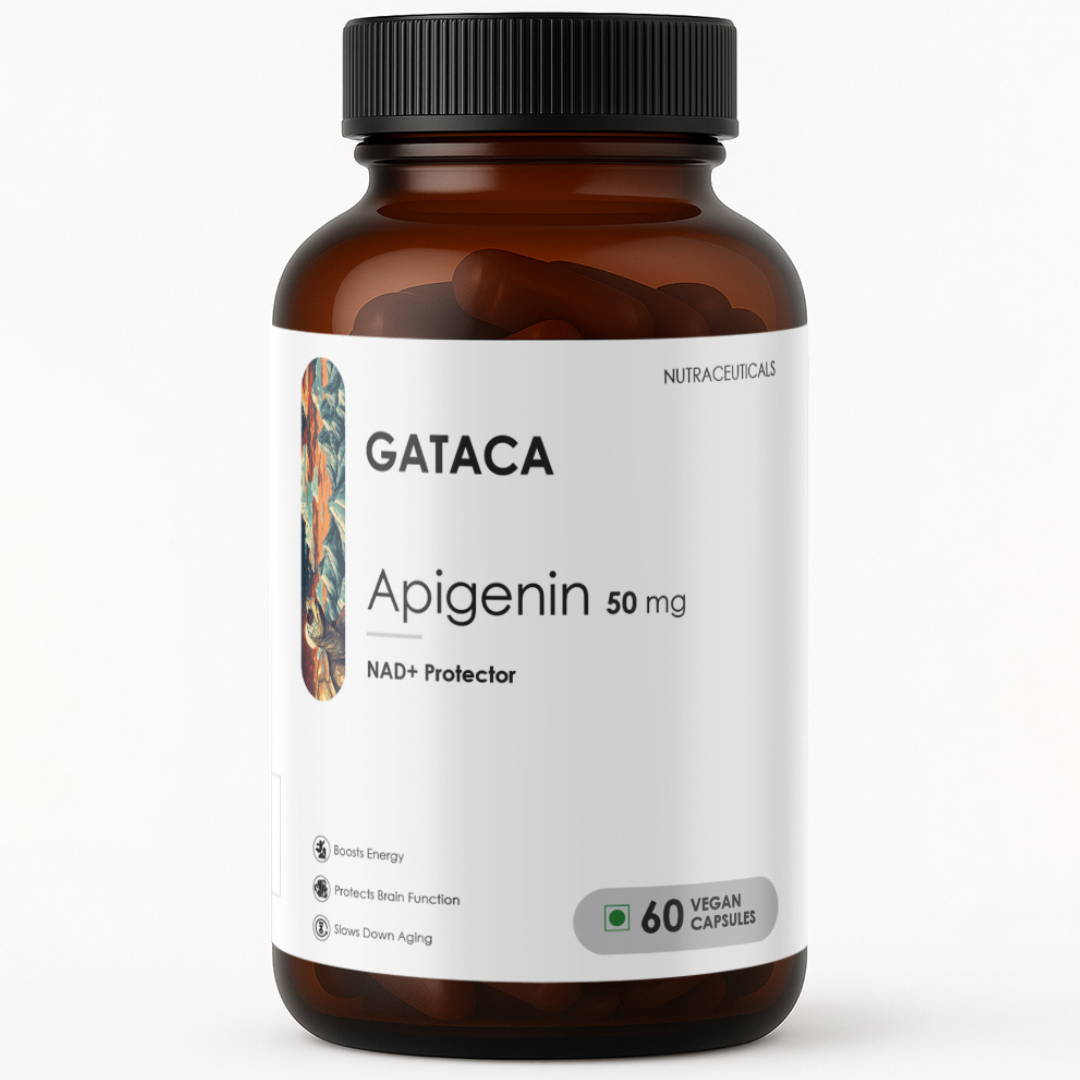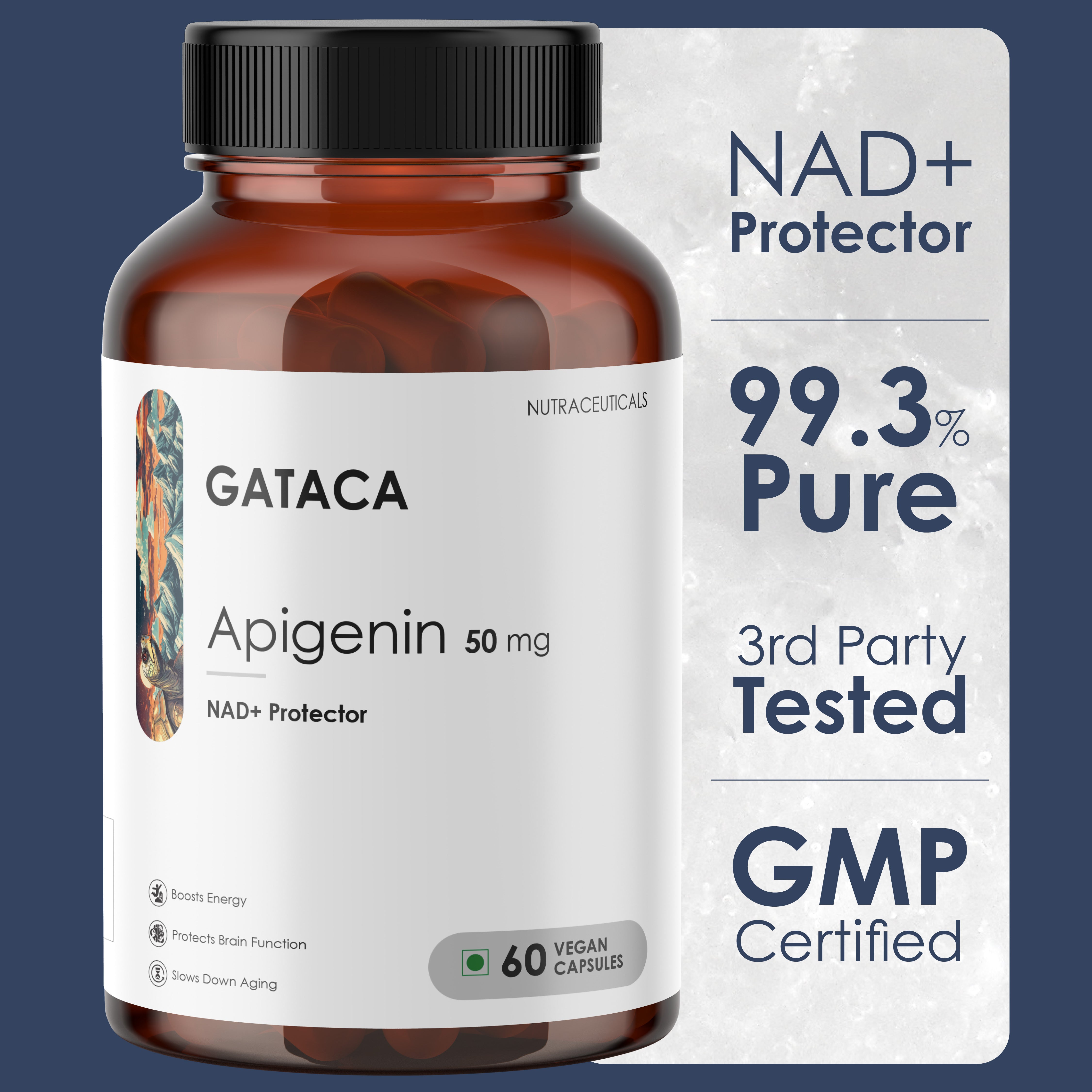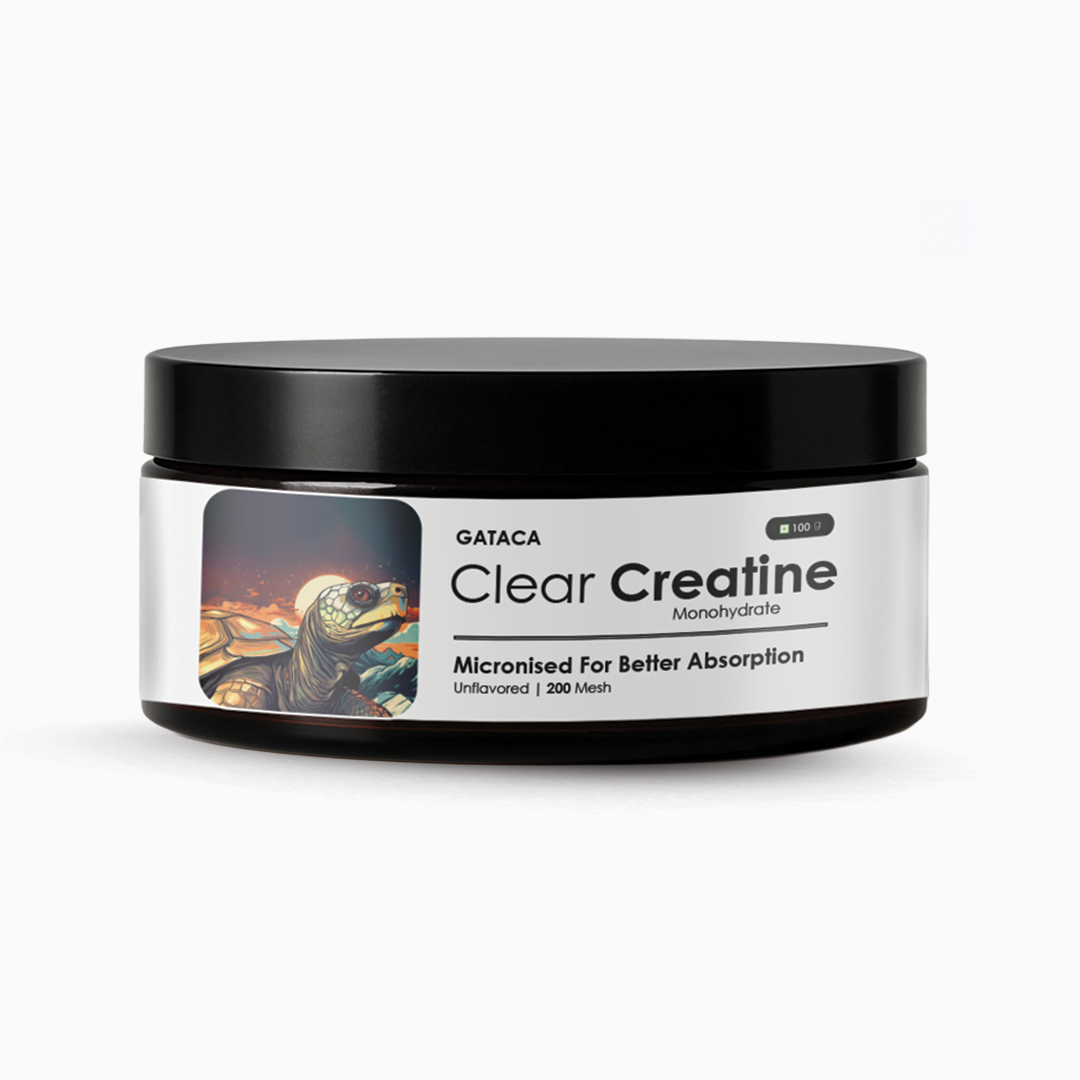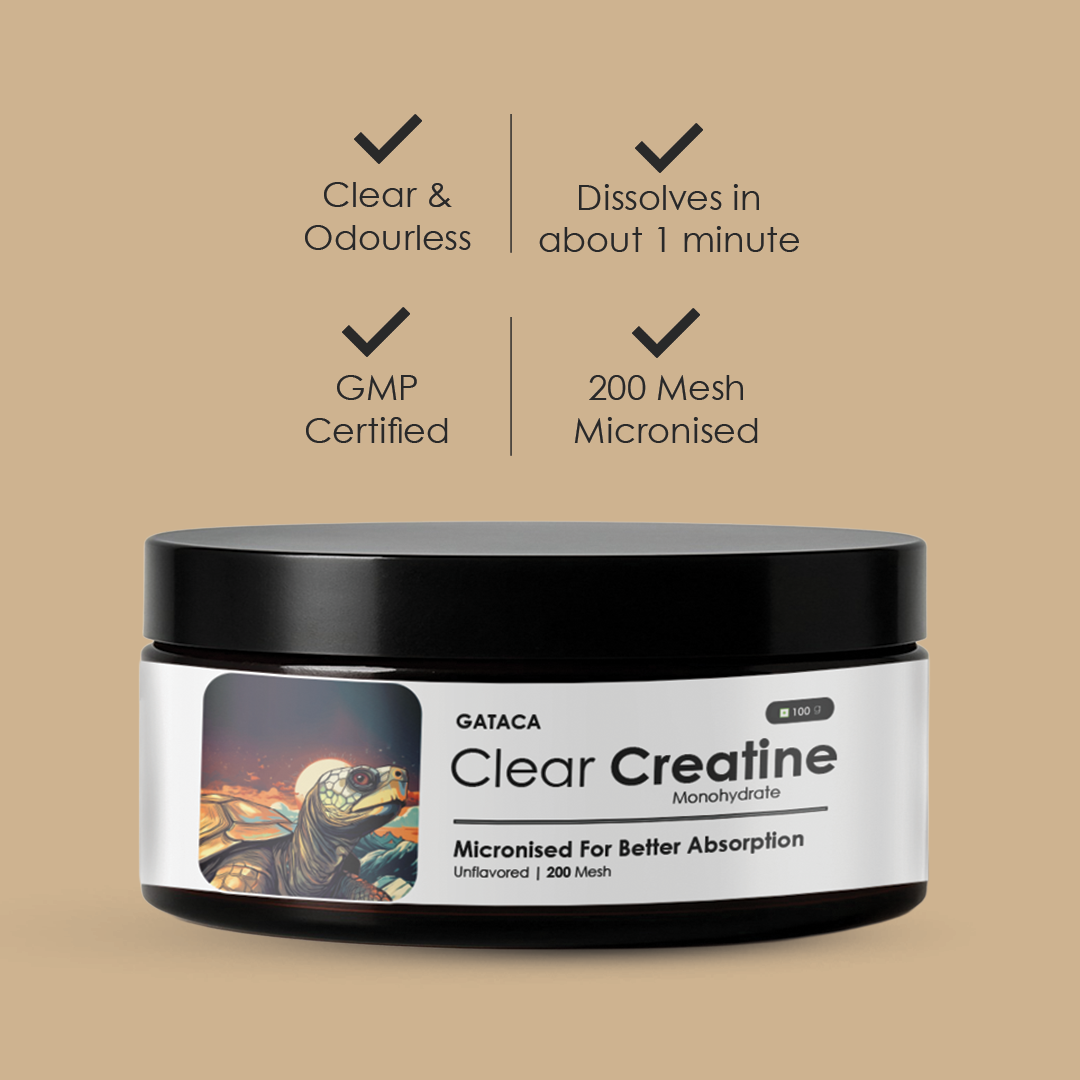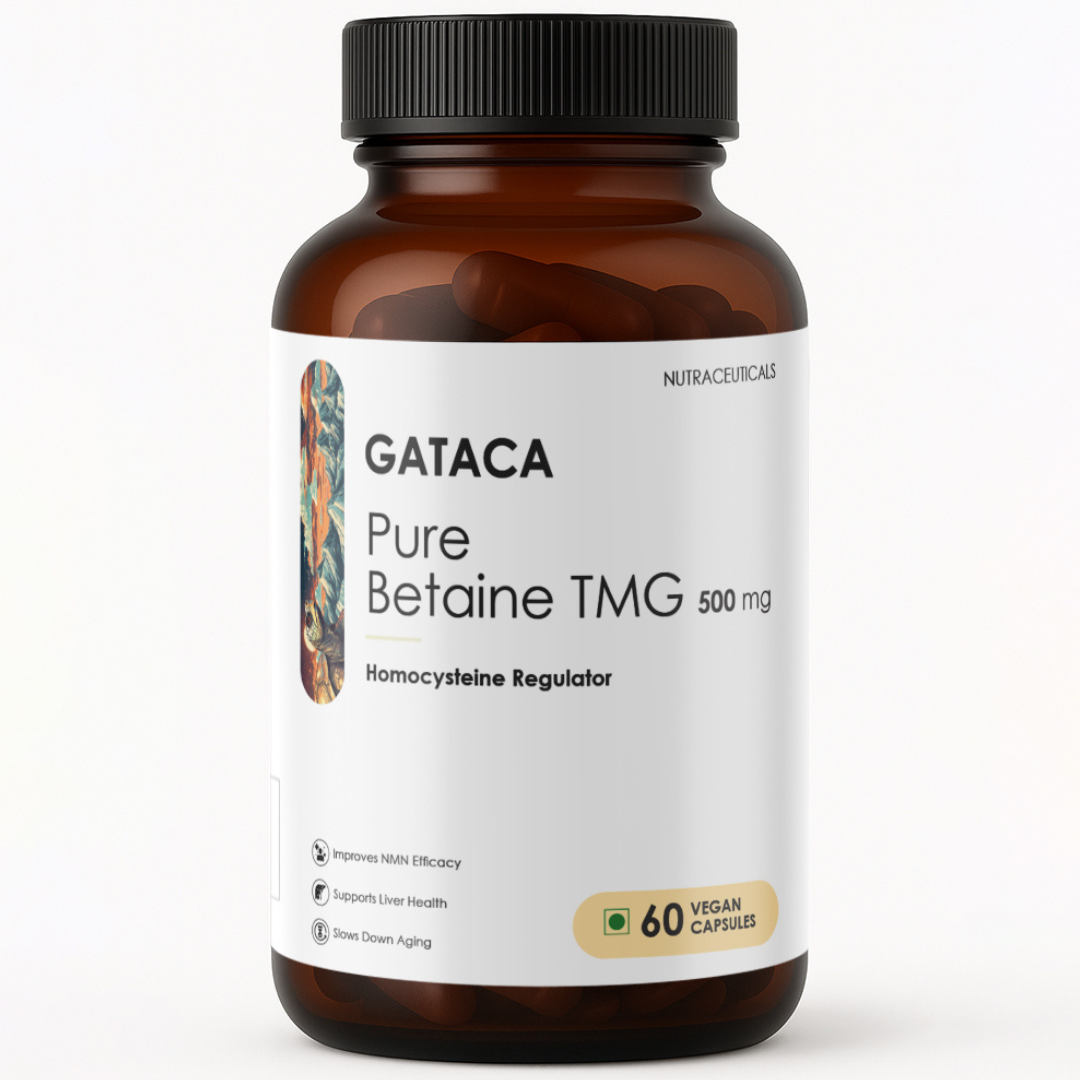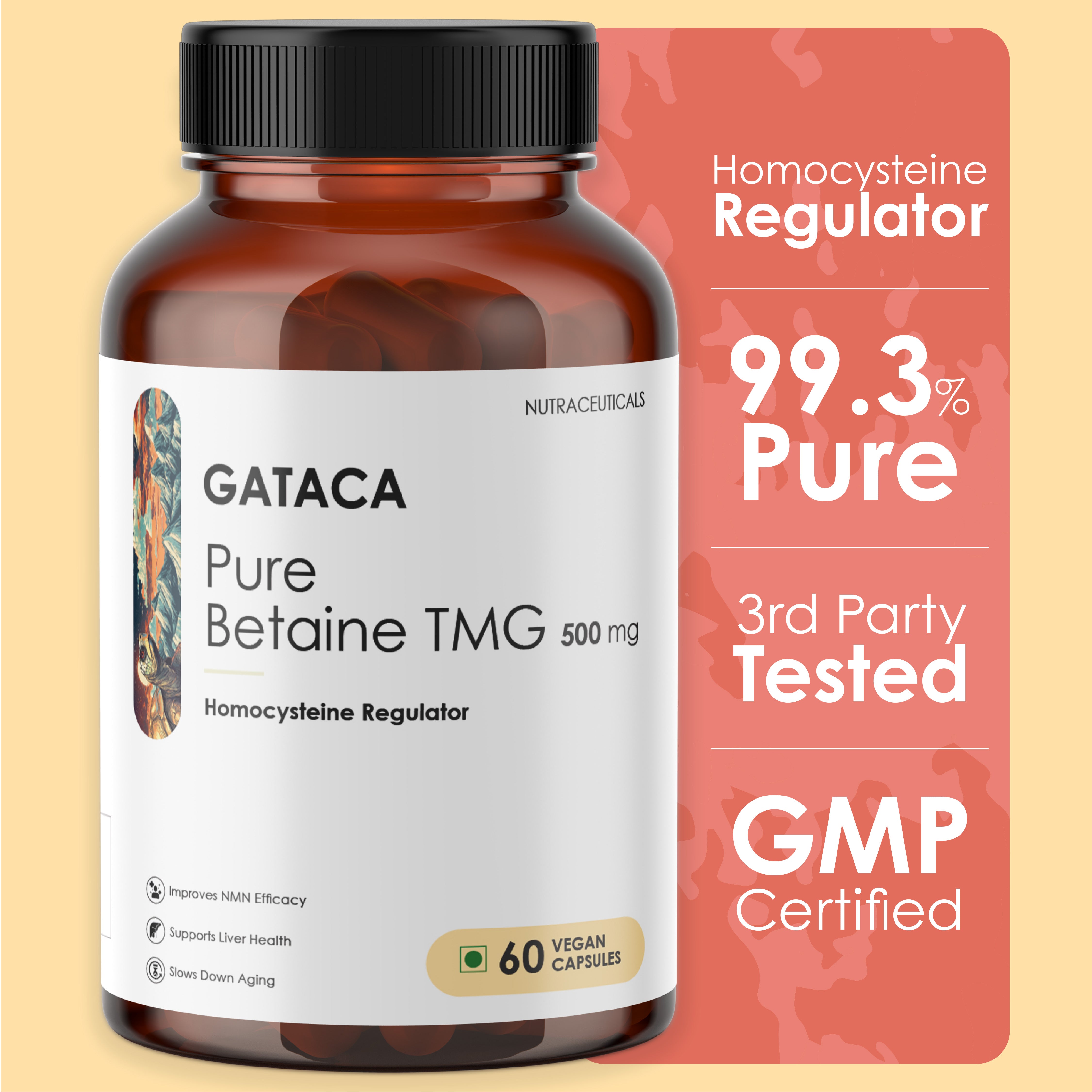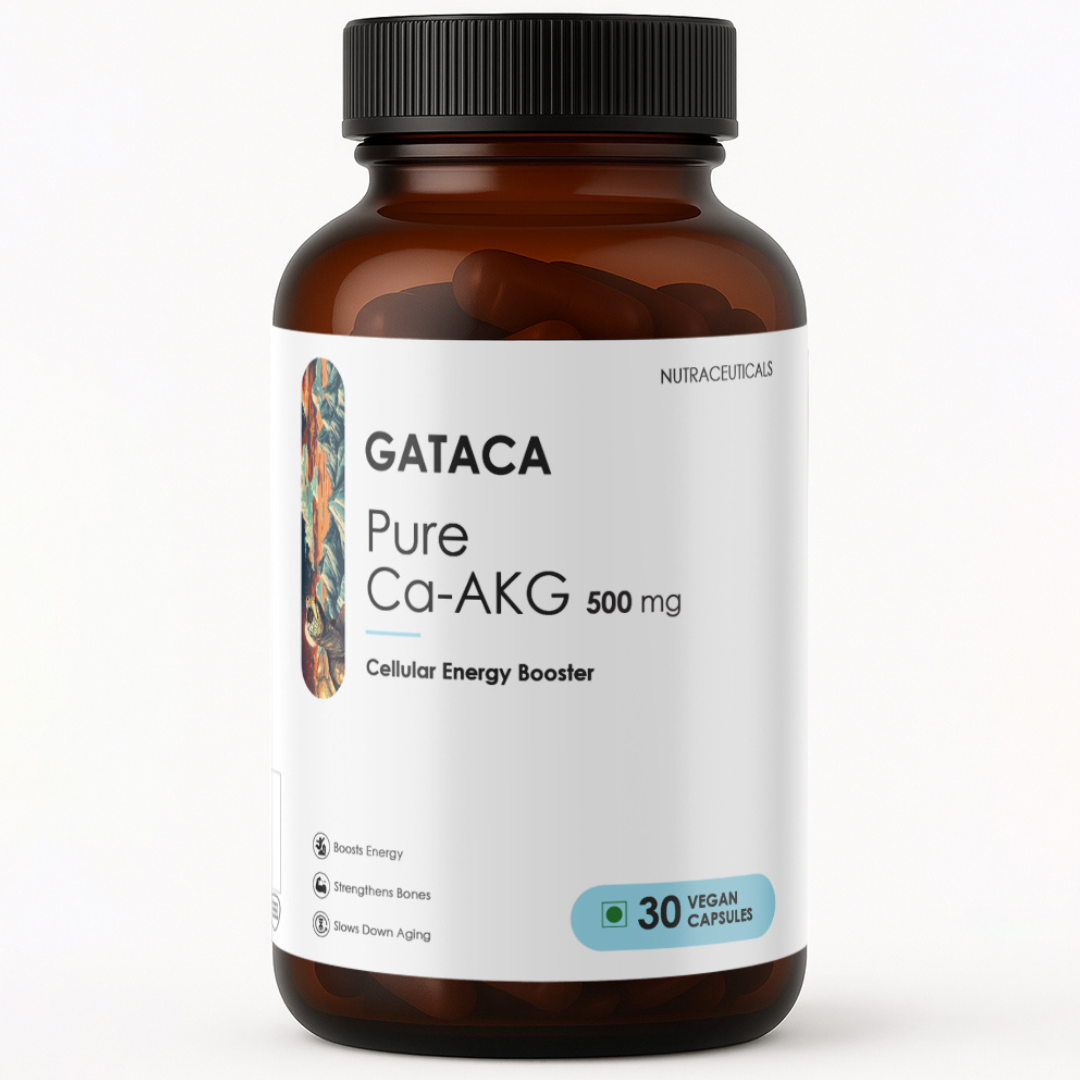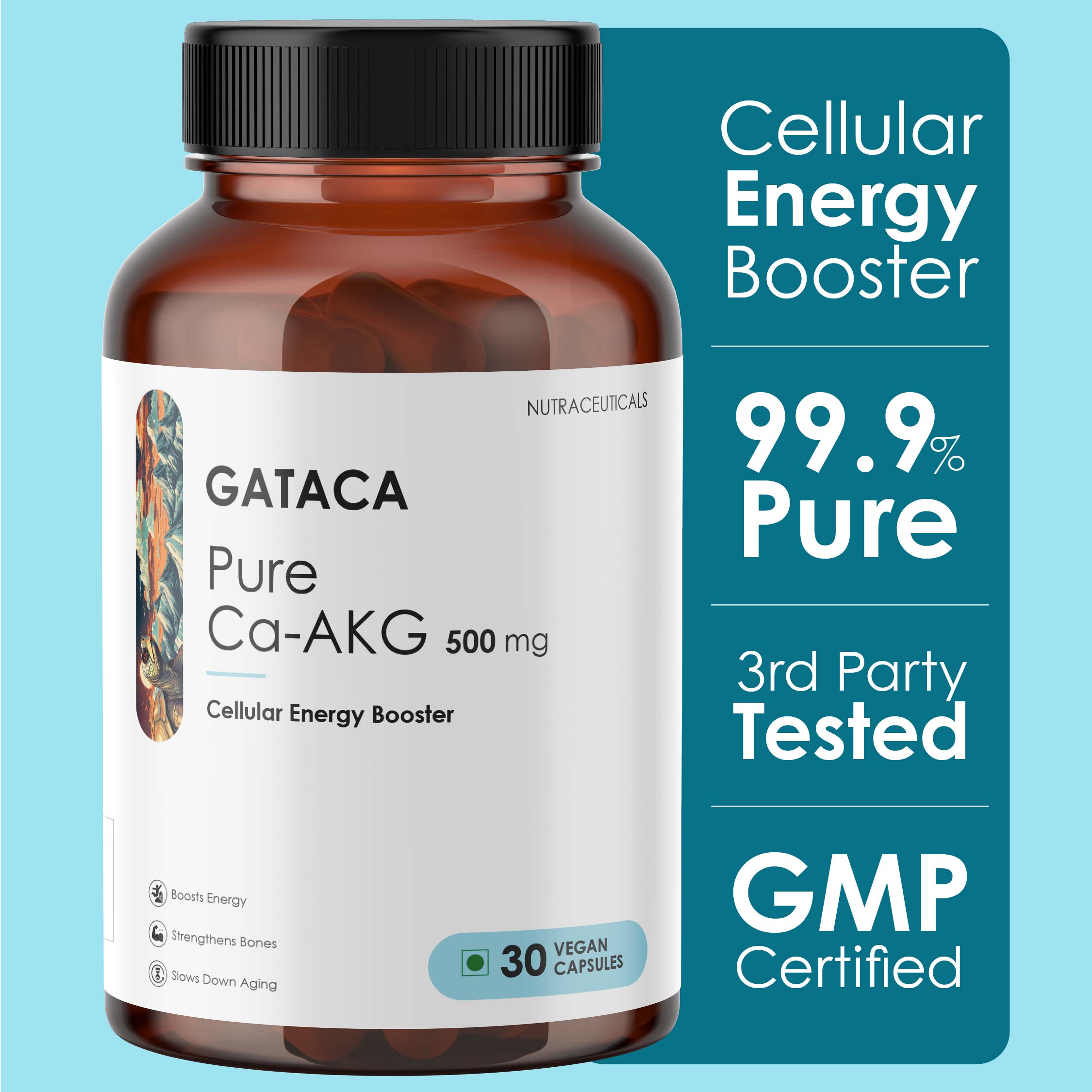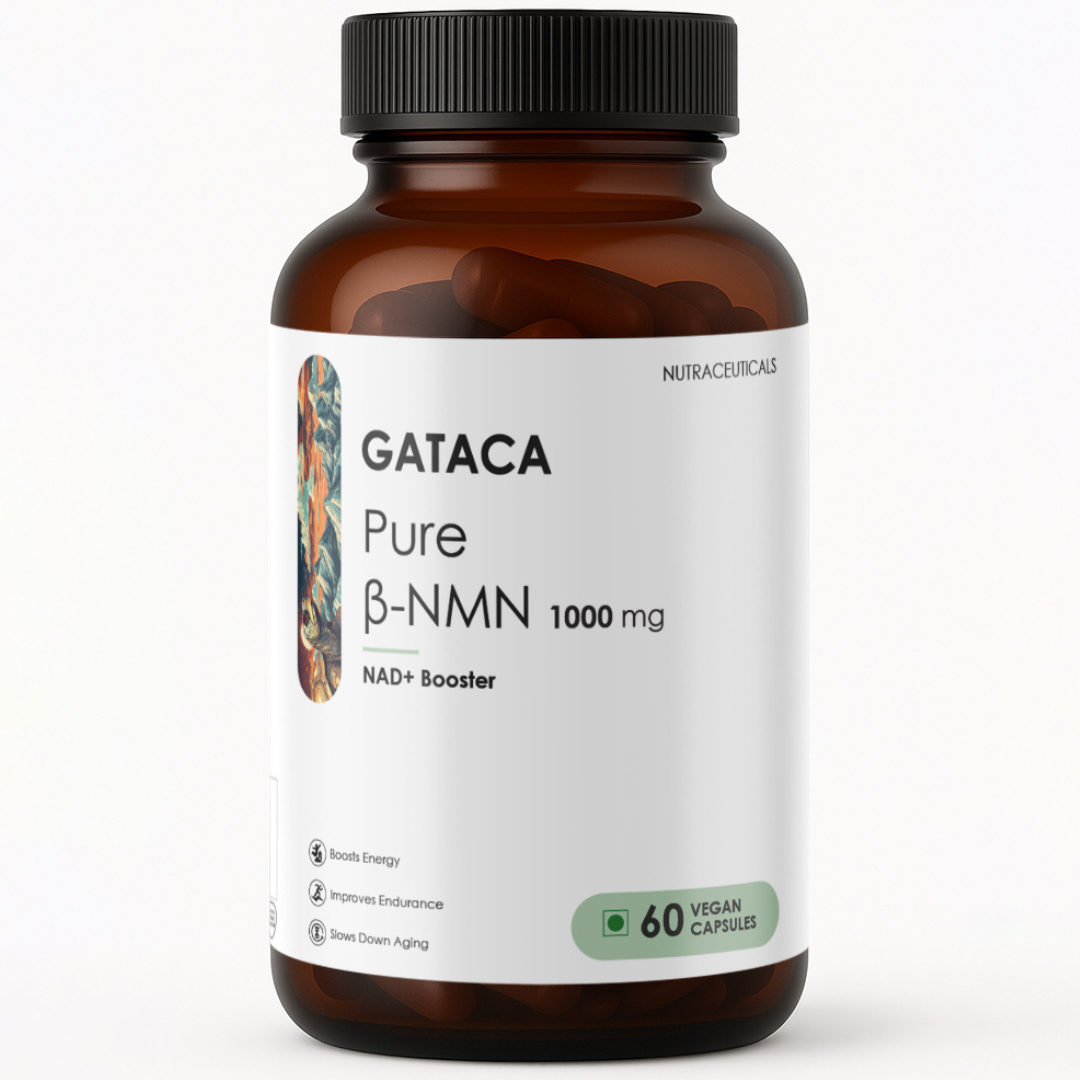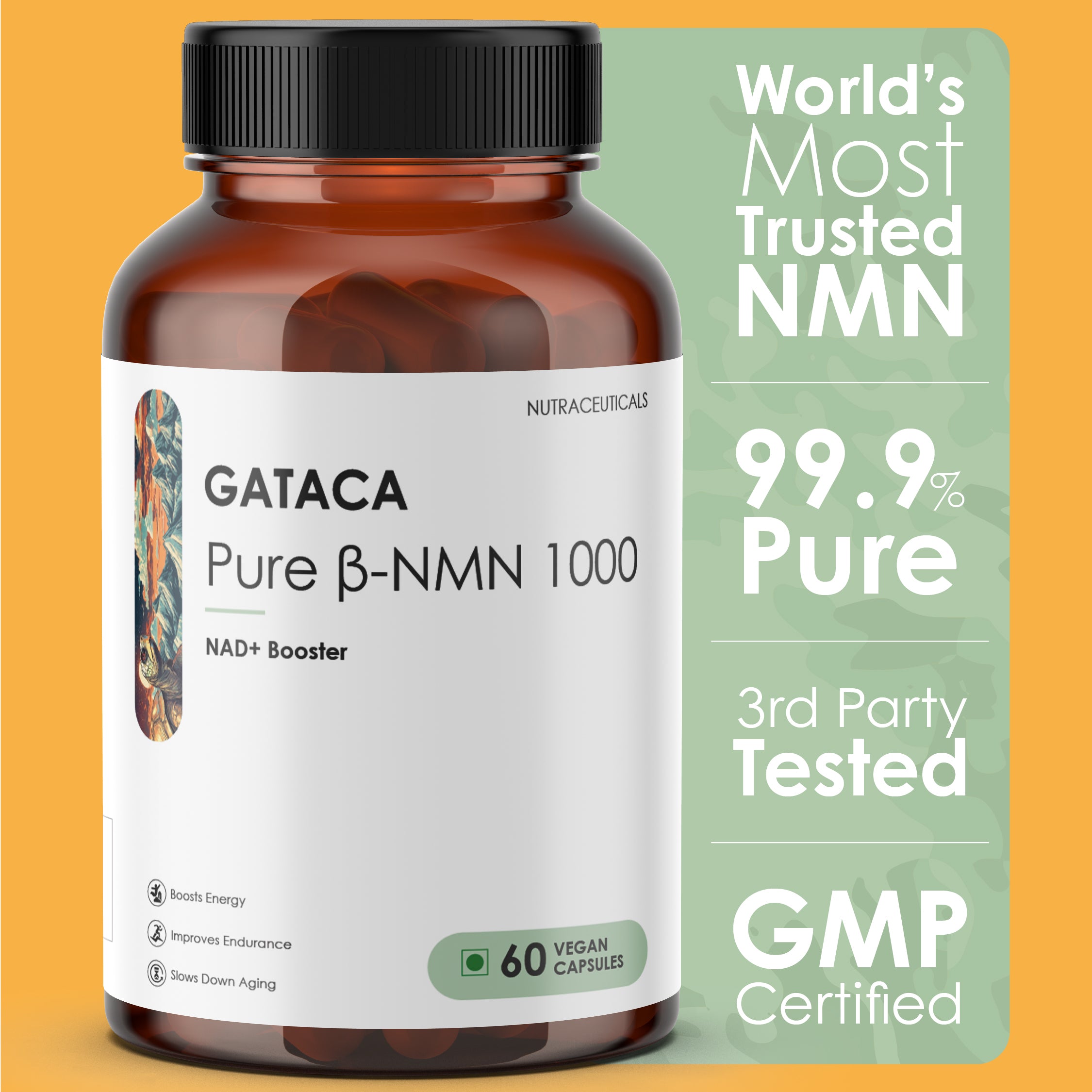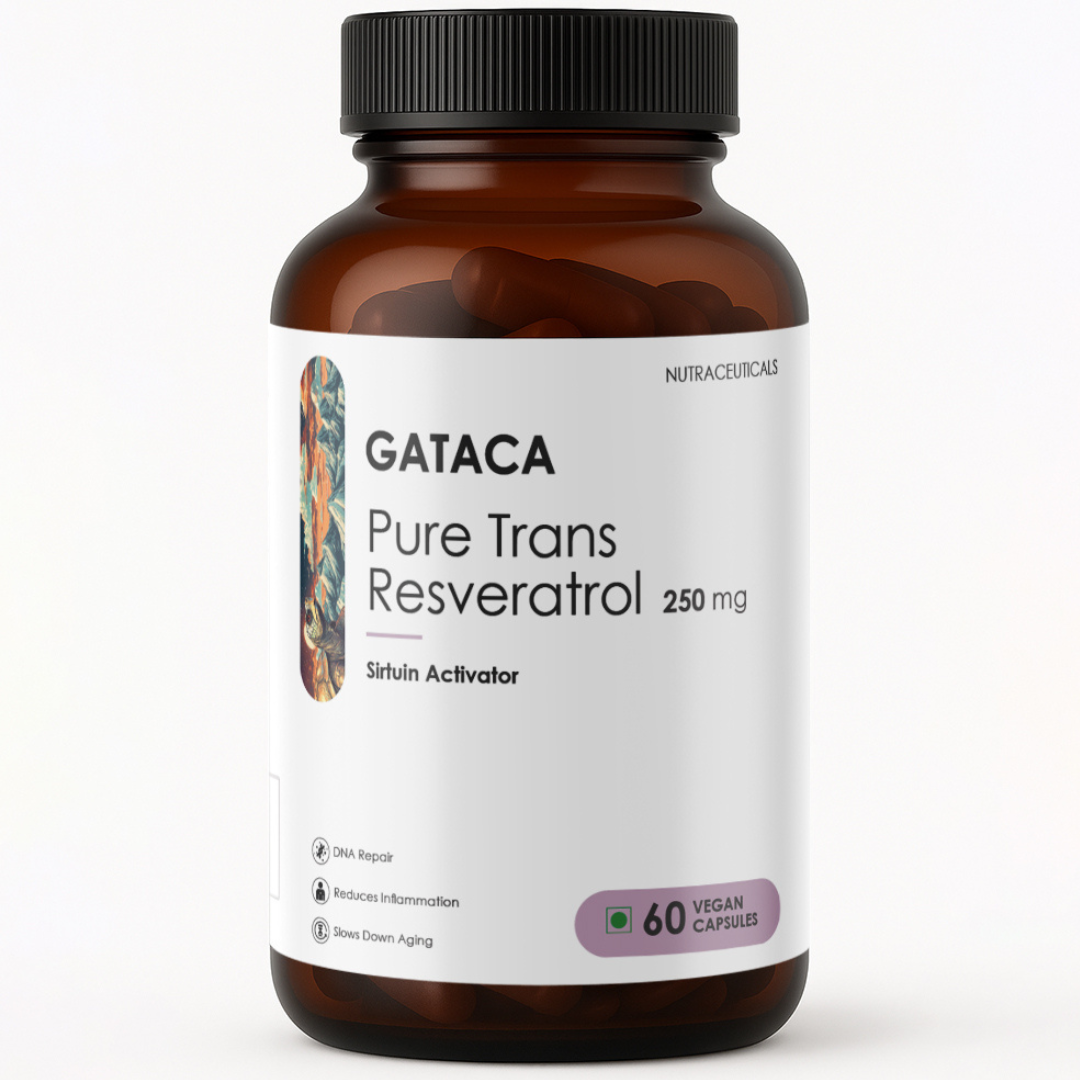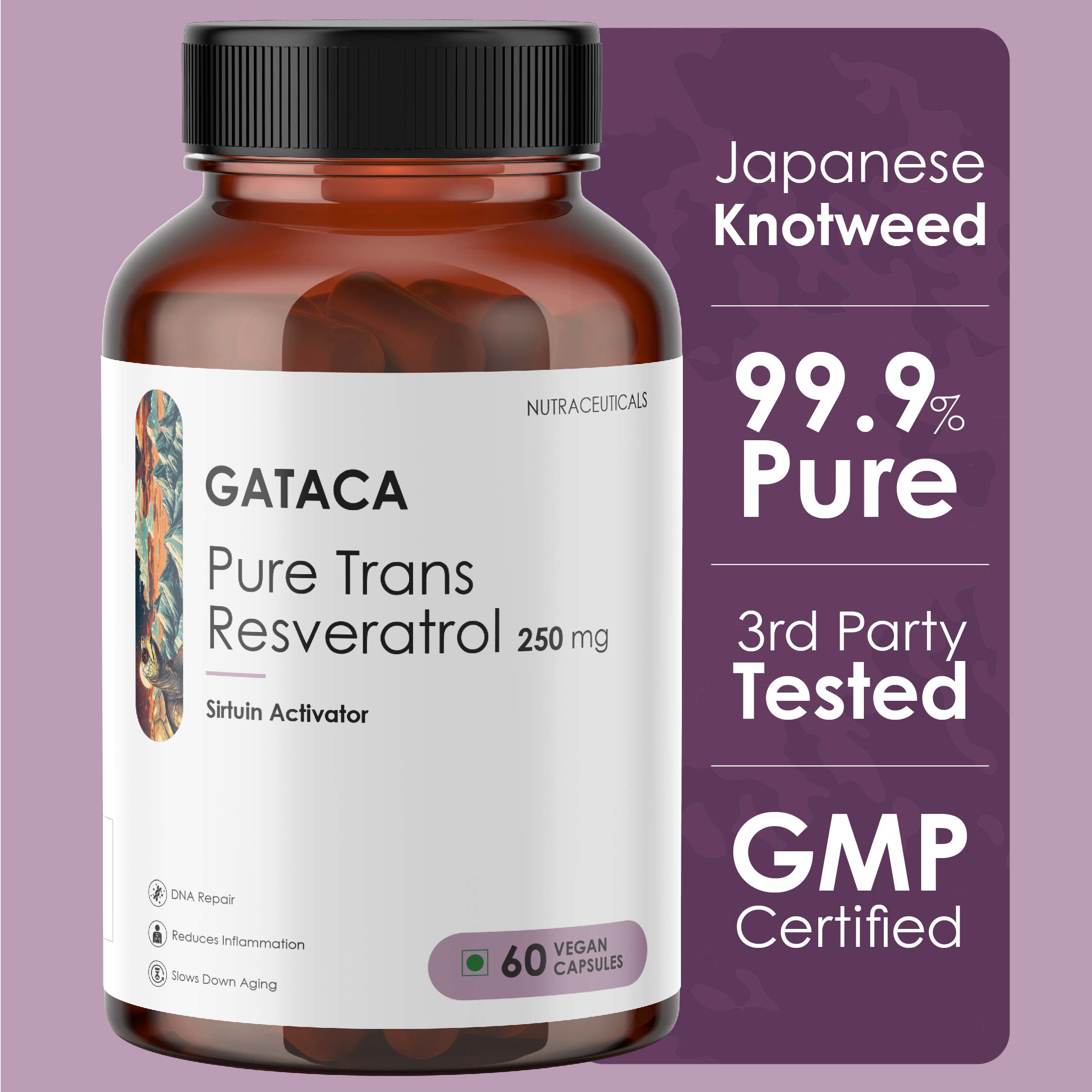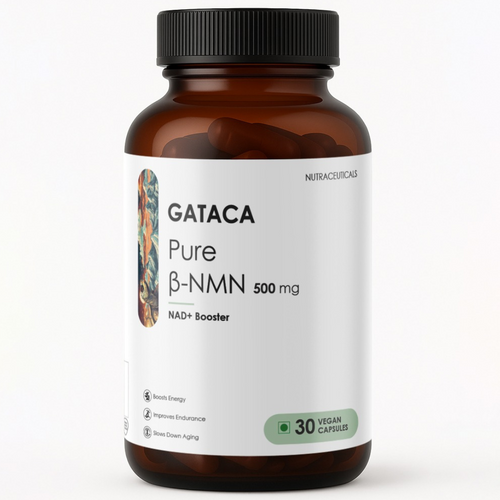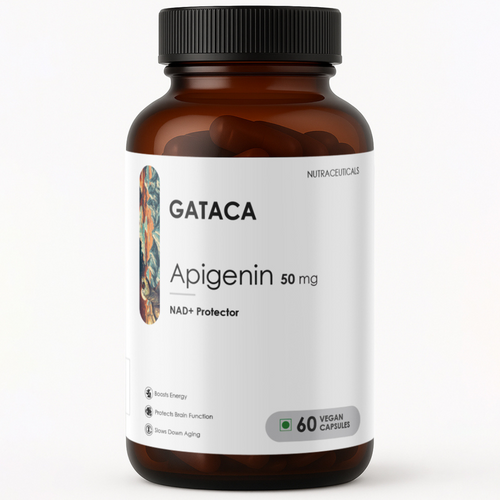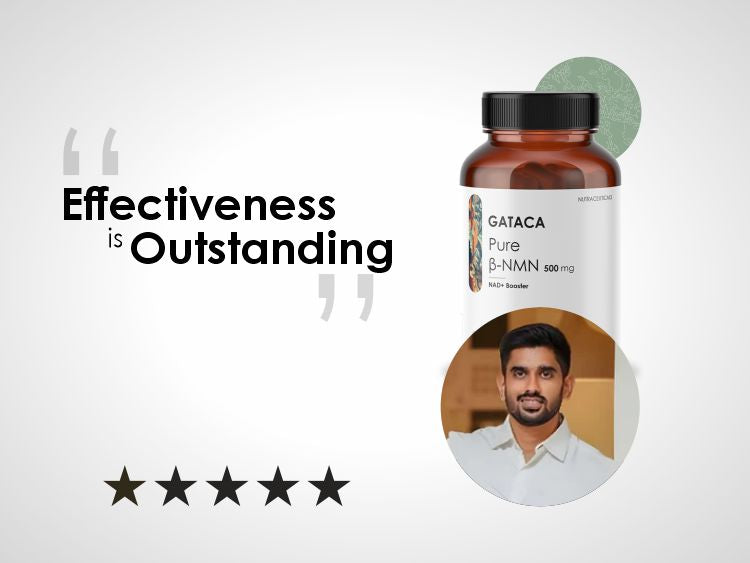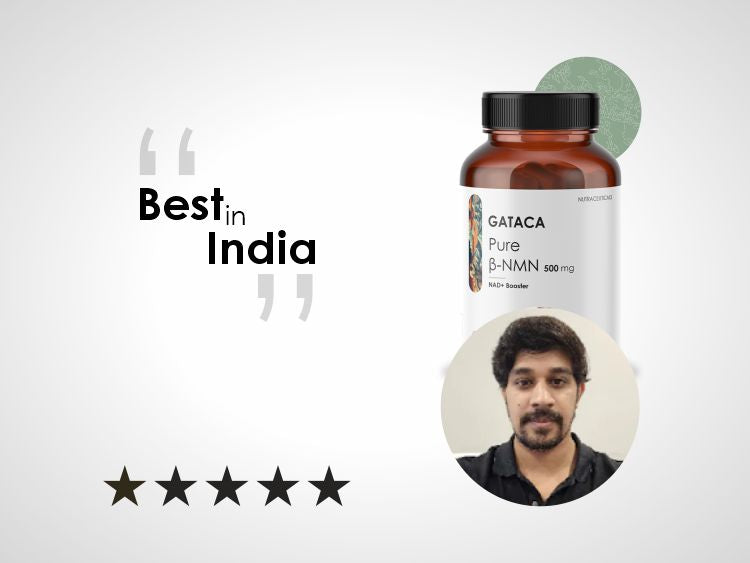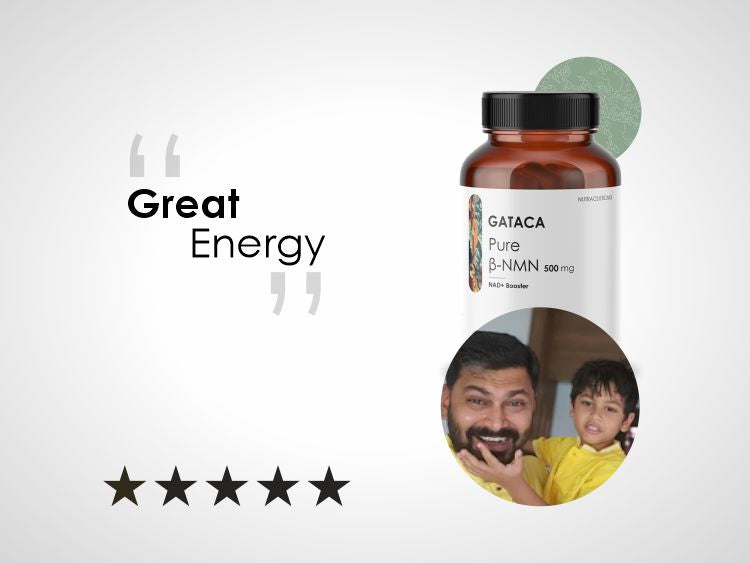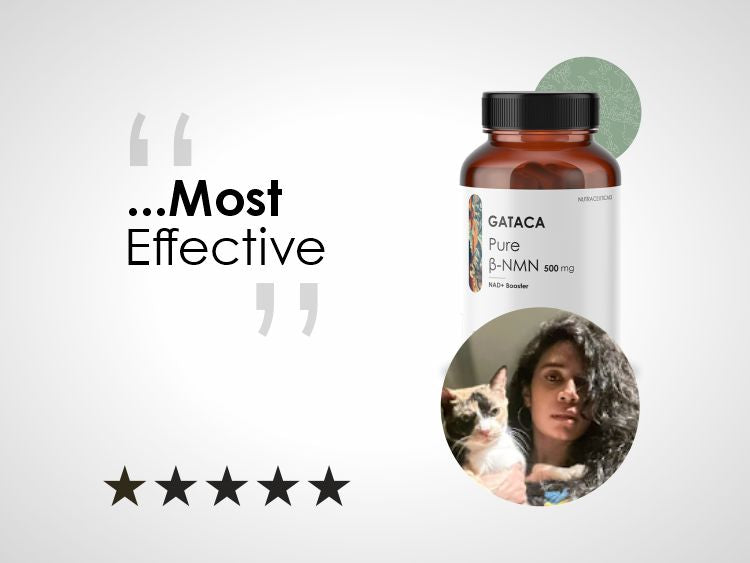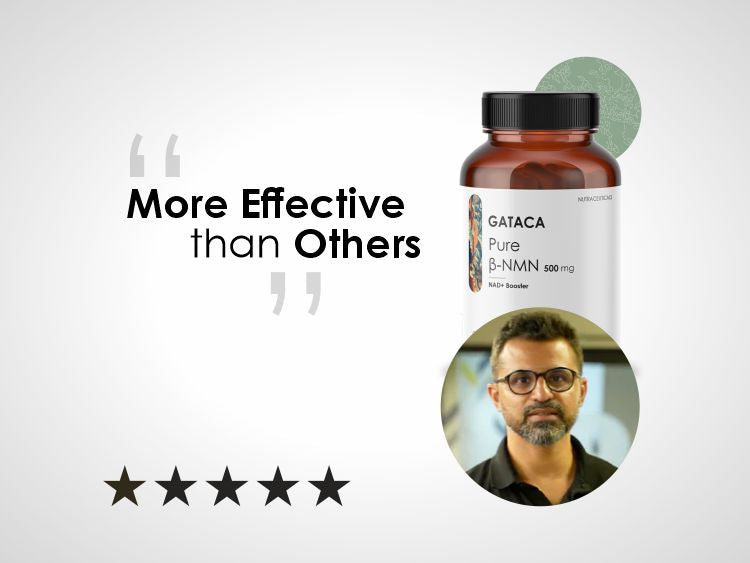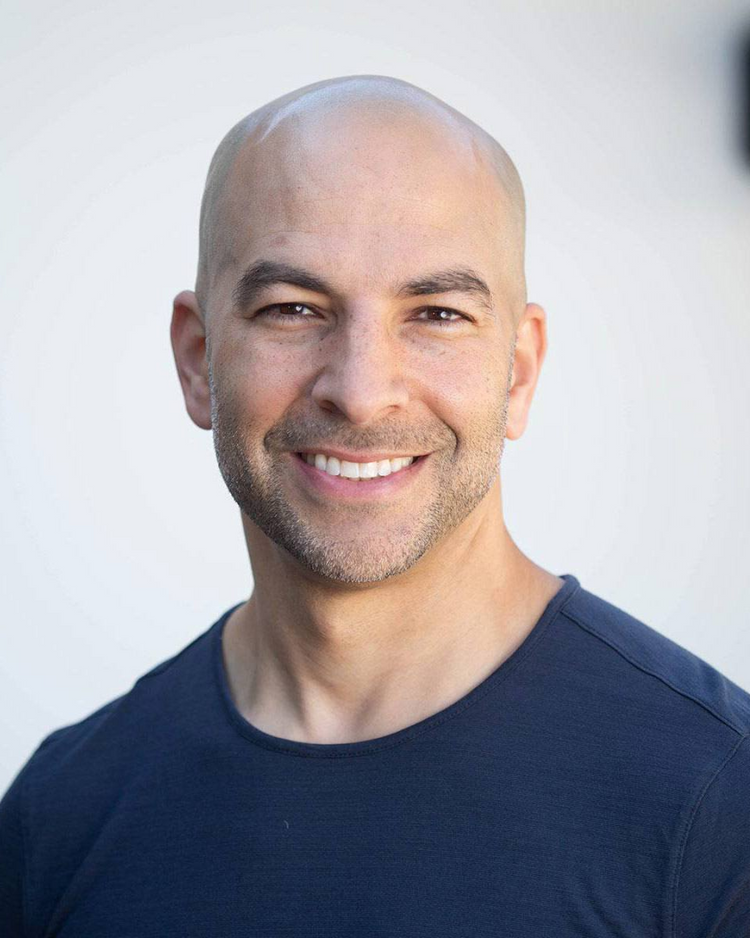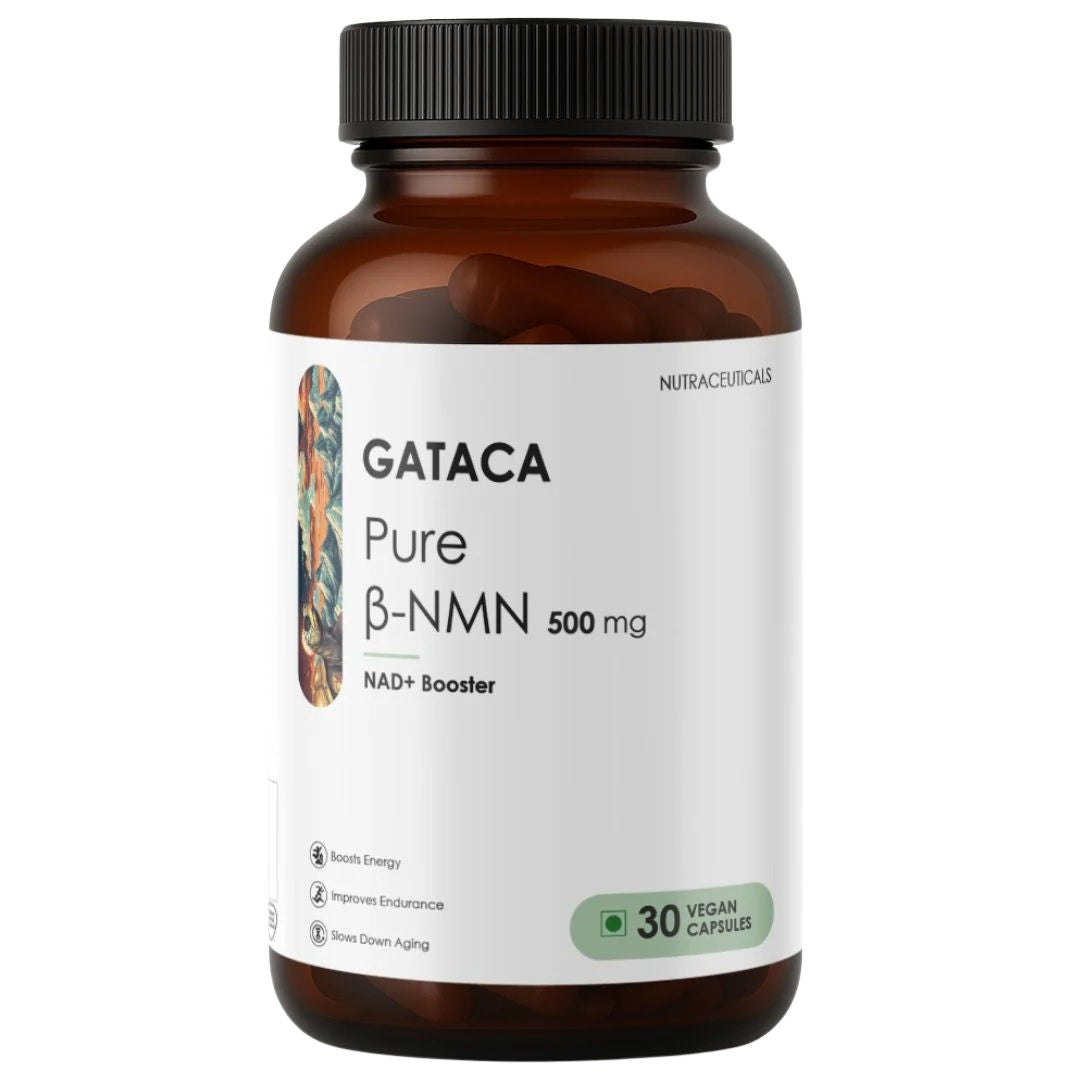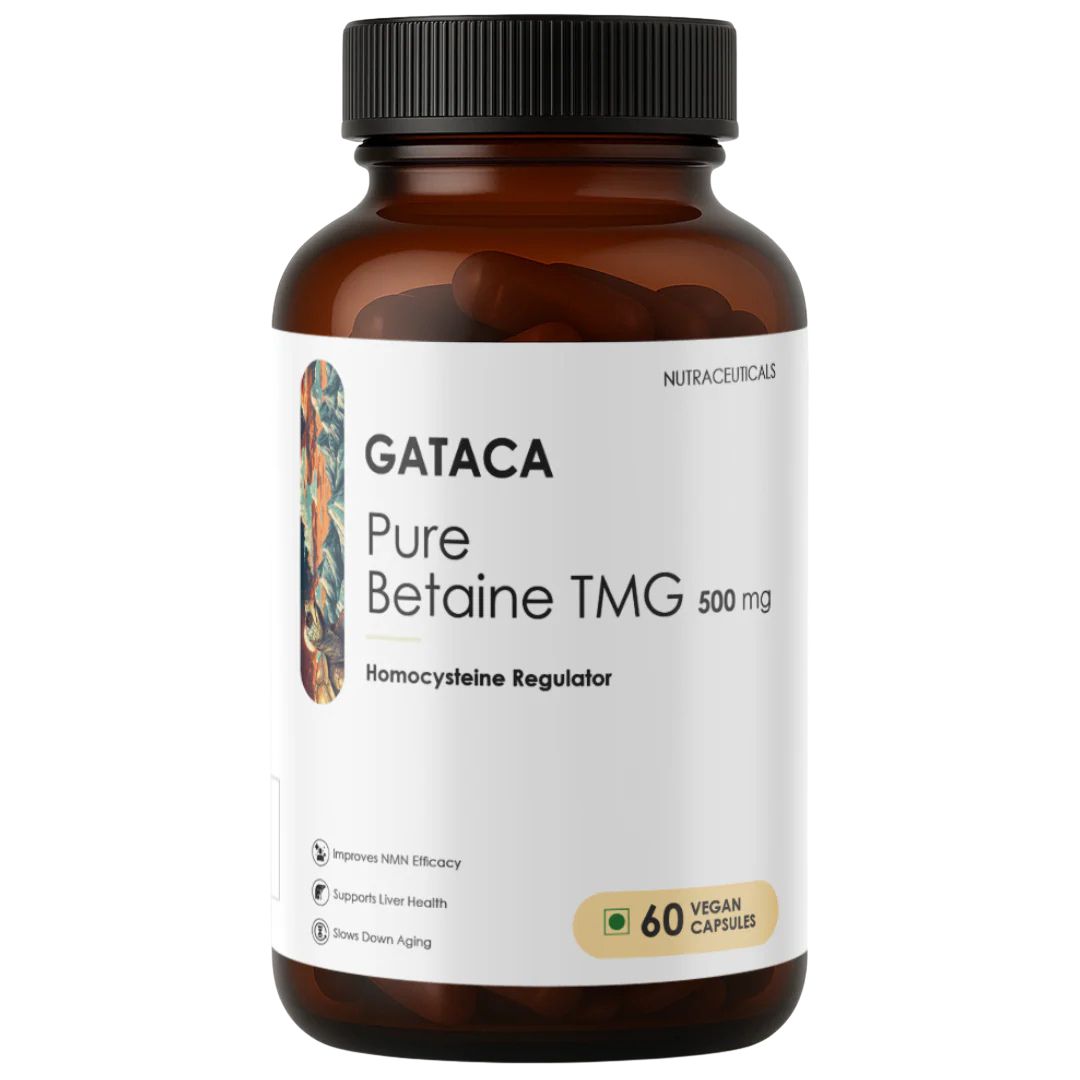Samantha's Supplement Stack
Start Stack
Recommended for the 1st month
Shop By Goal
Supplements to enhance and improve your body and mind to help you pursue your goals






Live Longer Through Peak Performance
Peak Performance matters
Peak Performance matters
Remember that day! You woke up feeling all the energy in the world. You did not
procrastinate. You dominated the tasks you set out to do and finally went to bed feeling you made the world a better place.
We’re being a bit dramatic, but you know what we are talking about.
You performed at your peak! Now imagine a whole week like that, a year or a lifetime
like that day!
Peak performance matters and the only way to achieve this is by driving your body
with the right mix of fuels.
Longevity Matters
Longevity Matters
Most Indians find themselves navigating through hospital corridors in the last decade of their lives, depleting hard-earned savings as their quality of life falls dramatically. We’ve seen this, growing up, our parents looking forlorn while they navigated doctors’ opinions, treatments and hospitals. This “hospital-chasing’ model of health is inescapable across the globe.
But it doesn’t have to be this way!
By taking care of your health now, you can live & live well into your 80s & 90s!
Longevity isn't just about adding years to your life—it's about enhancing the quality of those years.
Performance For Longevity
Performance For Longevity
It all starts with a decision to live healthier. Think of your body as a car—your car! You add premium fuel to get around, keep it clean, and never miss service and maintenance dates.
But do you treat your body the same way? You wouldn’t add
kerosene-laced fuel to your car, but you consume unhealthy foods. You clean
your car daily but neglect the inner workings of your body. You never skip a service appointment, but do you have a yearly schedule for preventive health
check-ups?
Just like your car, your body can be tuned for peak performance, to give you the
best mileage, (yearage?)…
longevity!
Performance & Longevity Academy
What Happens to NAD+ After 30 and Why NMN Matters More Than Ever
What Happens To NAD+ Levels After 30? Okay, picture this: NAD+ is like the unsung stagehand at a big Bollywood production and it’s behind the curtains making sure the lights work, the actors don’t trip over the wires and the director’s chai is always hot. Now imagine after you turn 30, that stagehand starts skipping work more often when suddenly people forget their lines and the whole show feels a little off. That’s your body without optimal NAD+ levels. Scientifically speaking, NAD+ (short for nicotinamide adenine dinucleotide, a crucial coenzyme) begins to dip by as much as 65% by the age of 30-70 (Yikes!) which means less energy at a cellular level, sluggish DNA repair and a slower metabolism. Your mitochondria - the tiny engines of your cells, suddenly start running like old scooters instead of brand-new sports bikes. You’re still you, but just with a lot less vroom. Why NMN Is Important After Age 30 Enter NMN, or nicotinamide mononucleotide, which is basically the upgrade your cells didn’t know they needed. After 30, fuel levels drop. NMN swoops in like a premium fuel delivery service, topping up the tanks before things go off schedule. NMN acts as a precursor to NAD+, which means it helps your body produce more of this life-supporting molecule naturally and instead of patchy energy and slow recovery after a stressful day (or a killer HIIT session), your cells get the resources they need to function optimally. This obviously translates to better metabolic health, more consistent energy, faster recovery and even greater support for brain function overall. Signs Of NAD+ Deficiency In Adults Now, how do you even know if your NAD+ levels are waving the white flag? While you can get fancy lab tests, your body drops hints that are hard to ignore. Firstly, that unshakable fatigue despite mainlining three cups of filter coffee by noon? Classic sign. Then there’s the slower muscle recovery after a workout. It feels like you need a personal physio just to get off the sofa. Add to that a tendency to pick up every cold going around the office and a growing waistline despite no major changes in diet. Oh, and the new wrinkle that popped up overnight? That’s your skin telling you cellular repair isn’t what it used to be. NMN Supplements Benefits After 30 For starters, energy production improves at a cellular level and your mitochondria begin to function more efficiently, which means you don’t feel like your limbs are full of sand by 4 pm. Recovery from workouts or long days at work also speeds up dramatically because your cells have the resources to repair themselves faster and that translates to less muscle soreness and better resilience overall. Then there’s the impact on brain health. NAD+ is deeply involved in cognitive function, so better levels can mean sharper focus and memory. Your metabolism also gets a much-needed reboot. Think better fat utilisation and more stable blood sugar levels, which is pretty much the holy grail for anyone who wants to maintain a healthy weight without endless crash diets. Conclusion Here’s the thing, turning 30 isn’t some grand announcement that your energy and ambitions have packed their bags and left the building. It’s more like your body quietly tapping you on the shoulder and whispering that it might be time to give the engine room a little extra love, and when you choose to support your natural NAD+ production with NMN you’re essentially slipping your cells the tools they’ve been craving to fire on all cylinders again. NMN surely is NOT some magic bullet promising immortality but it is easily one of the most studied and genuinely promising ways to keep your energy, recovery and overall health humming as the years go by. FAQs 1. What is NAD+, and why is it important after age 30? NAD+ is a coenzyme found in every cell of your body and is essential for energy production, DNA repair and metabolism. After age 30, natural levels decline, which can lead to fatigue, slower recovery and accelerated ageing. Maintaining healthy NAD+ levels supports better energy and resilience. 2. Does NAD+ production really decline with age? Yes. Studies show NAD+ levels start to dip by your late twenties and can fall by up to 50 percent by mid-life. This decline impacts energy production and cellular health. Supporting your body’s NAD+ levels through lifestyle or supplements becomes more important after 30. 3. How does low NAD+ affect your body and energy levels? Low NAD+ can lead to constant fatigue, slower muscle recovery, brain fog, weakened immunity and even early signs of aging. Because NAD+ is vital for energy at a cellular level, its decline can affect nearly every aspect of physical and cognitive performance. 4. Can NMN supplements help restore NAD+ levels? Yes. NMN is a precursor to NAD+ and helps the body increase its natural levels. Consistent NMN supplementation may improve energy, metabolism, brain function and cellular repair, making it especially useful after 30 when natural NAD+ production begins to decline. 5. Is NMN safe to take after 30 for long-term health? Current research suggests NMN is safe for healthy adults when taken in recommended doses. It’s well tolerated, and since it supports natural processes in your body, it’s suitable for long-term use. Always consult your doctor before adding any supplement to your routine.
Learn moreWhy You're Still Tired After 8 Hours of Sleep
Why Am I Still Tired After 8 Hours Of Sleep? Let’s get one thing straight. If you’ve slept for a solid 8 (or 10) hours and still wake up feeling tired, you’re not lazy, broken or overdramatic; you’re just in the company of millions of people whose bodies are technically horizontal at night but never truly resting. It’s not about how long you sleep, it’s about what your brain and body are doing while you’re out cold. If your sleep cycles are shallow, fragmented or constantly yanked out of rhythm - thanks to stress, caffeine, scrolling or snoring, your body never hits the deep, slow-wave and REM stages it needs to fully reboot. Think of it like recharging your phone on a dodgy USB cable: it lights up, but it’s not really filling up. And then there’s sleep inertia, a.k.a that cursed fog that makes your brain feel like it’s booting up on Windows 98 while the world runs on fibre broadband, and that groggy mess is often caused by waking up during the wrong stage of your sleep cycle. Not to mention the sneaky suspects: sleep apnea, iron or B12 deficiencies, underactive thyroid, or low magnesium levels - pretty common in Indian diets, especially if you’re vegetarian or skipping out on whole foods in favour of yet another dosa + filter coffee situation. In short: You’re sleeping. But you’re not recovering. And that’s a problem you can absolutely fix. How To Stop Feeling Tired After Sleeping First, let’s drop the idea that more sleep equals more energy. You could sleep 12 hours and still wake up feeling like a rickshaw with a flat tyre if your sleep quality is trash. Here’s where you get smart about your recovery game. Fix your sleep hygiene, not just by changing your bedsheets (though, yes, please do that too), but by reworking the entire vibe of your nights. Your body loves consistency, and that means going to bed and waking up at roughly the same time every day, and yes, Sundays too! Next, protect your circadian rhythm like it’s your Spotify Discover playlist: personal, essential, and wrecked if tampered with too much. Your body runs on light cues, so if you’re waking up to darkness, working indoors all day, and binging on reels till 2 AM, your internal clock is basically in a different time zone. Here’s where supplements can help. Your body’s little energy factories (called mitochondria) don’t just run on vibes; they need actual fuel, and if your diet’s not delivering, smart supplementation is your shortcut to try. Some great options to try are apigenin, melatonin - all of which are natural. Apigenin is a plant based compound that helps keep your blood pressure on track- keeping your heart and brain working better than ever. Sleep Hacks To Feel Energised Let’s break down some practical, no-fluff hacks that can turn your sleep from “meh” to “miraculously restorative”. Chill before you crash Give yourself a wind-down hour. That means: no screens, no emails, no revenge-scrolling. Do some light stretching, journaling or breathwork. And if your brain is still racing, take a dose of magnesium glycinate or TMG Betaine. You could also try calming adaptogens, which help switch off the cortisol party and let melatonin take the wheel. Track it to hack it Your sleep may feel decent, but you could still be tossing, turning or waking up multiple times without knowing it. Use a tracker to see how much time you're actually spending in deep or REM sleep. It’ll tell you more than guesswork ever will. Support your mitochondria If you’re tired even after decent sleep, your body’s energy production is likely lagging. NMN, Apigenin, TMG, CoQ10 and alpha-lipoic acid aren’t just trending, they’re well-researched mitochondrial support compounds that help your body make more energy, more efficiently. Think of it as cellular caffeine, without the crash. What’s better- they are great for cellular health in the long term and help them age better too. Conclusion Look, waking up tired isn’t just annoying. It’s disorienting. You start questioning your life choices, your mattress, your career, and your ancestors. But here’s the thing- it’s not you. It’s your recovery game that needs a glow-up. You can’t out-sleep bad habits, or poor nutrient levels, or chronic stress. But you can get smarter about how you rest, how you fuel, and how you supplement. When you pair quality sleep with smart cellular support like Gataca’s NMN, you’re not just surviving mornings, you’re owning them. And that Hyderabad traffic you dread at 9 AM? You’ll be ready to stare it down with a grin, a podcast, and a pulse that says, “I’ve slept. I’ve recovered. Now, let’s go.” FAQs- 1. Can sleep apnea make me tired even after a full night’s sleep? Yes, sleep apnea causes multiple interruptions in breathing during the night. This prevents your body from entering deep restorative sleep, leaving you tired even if you were in bed for 8 hours or more. 2. What are signs of poor sleep quality? Waking up frequently, vivid dreams, sweating, feeling groggy in the morning, and needing caffeine right after waking are common signs. Even if you sleep for a long duration, these indicate that your body isn't getting restful, deep sleep. 3. Does screen time affect sleep even if I get 8 hours? Absolutely. Exposure to blue light just before bed time suppresses melatonin production. This can delay sleep onset, reduce deep sleep stages, and result in waking up feeling haggard, despite clocking in enough hours. 4. Can stress or anxiety ruin my sleep quality? Yes. Chronic stress or even unresolved worry can prevent your brain from fully winding down. This leads to fragmented or shallow sleep, often without you realising it, and leaves you feeling exhausted throughout. 5. What medical conditions cause constant fatigue? Thyroid disorders, diabetes, anaemia, vitamin B12 deficiency, chronic fatigue syndrome and depression are some conditions that can cause persistent tiredness. If fatigue continues despite good sleep, consult a doctor for a full evaluation.
Learn moreBetaine: The “Exercise In A Pill” Molecule You Need To Know About
Introduction - Exercise is good for you- this is something we have all heard. But, how often should you do it? Do you just do random HIIT sessions a few times in a month or do you exercise on a more regular basis, and work up a slow burn? How are the positive effects of exercise mediated by specific molecules in the body? One end result that research has definitely known about for a long time is the fact that exercise confers serious anti-aging effects on the body. This is why people age better, when they move on a regular basis. But, how does that happen? Scientists have worked long and hard to try to find any molecule that is intrinsically produced by the body and how it helps improve cellular processes. They have finally managed to zero in on TriMethyl Glycine (TMG), commonly known as Betaine. What Does Betaine Do To Your Body? Betaine or TMG is basically glycine- the smallest amino acid in existence, but it has 3 additional methyl groups to give away. Many enzymes basically just work to remove or add methyl groups to various molecules in the body - and it is important to remember that with the addition or deletion of even a single methyl group, the properties of a compound can change drastically. Methyl groups are used up regularly in crucial cellular processes like DNA methylation, protein synthesis, in regulating gene expression and also in ensuring that metabolic pathways function in the right way. This complicated concept can be expressed in another way- you can think of methyl groups as the gluten in a bread making factory. It is not the main ingredient like flour, but it helps regulate hundreds of enzymatic processes in the body and we all know that gluten is needed for great, crumbly and airy looking breads and that just a little goes a long way in improving bread texture and taste. The Connection Between Betaine and Exercise A group of researchers in the Chinese Academy of Sciences, from the Institute of Zoology worked for 6 years on a well designed study, to understand how exercise changes cells at the molecular level, for the better. They had 13 healthy male volunteers and the study was divided into 3 distinct phases. Phase 1- Baseline- 45 days- Only very basic movements were encouraged- like walking from one place to another and going about their daily routine, with a strict emphasis on getting enough sleep and eating well. After 45 days, stool and blood samples were collected. Phase 2- Acute Exercise or AE phase- A one time thing where volunteers were asked to run for 5 km at a speed of 8 km/hour. Samples - stool and blood were taken. Phase 3- 25 Days- Long-term Exercise (LE) - Where volunteers would run for 5 km daily or intermittently and no speed restrictions were placed. Samples were taken for testing. Then, with advanced multi-omics screening, they checked for specific markers and RNA molecules in the samples. They found that most of the positive anti-inflammatory and anti-aging effects could be attributed to one molecule- betaine that was synthesised in the kidneys. The activity of an enzyme choline dehydrogenase (CHDH) was upregulated in the kidneys, which meant more betaine was synthesised from choline, when participants exercised regularly for longer periods of time. The Exercise Paradox It was found that AE or acute exercise caused major spikes in cortisol levels, caused amino acid reserves to get depleted and oxidative stress was induced, using the IL6/Cortisol pathway. This is like being in a state of metabolic turmoil. But, LE or long term exercise helped reprogram metabolism and immunity in a more stable manner- by expanding the number of naive T-Cells, which would in effect help suppress aging related markers like ETS1 and helped decrease the activity of TANK-Binding kinase-1 (TANK1) - which is an enzyme that helps promote inflammation using interferons and NF- kappa B. This is why researchers have tried to understand if supplementing with betaine could help regulate aging and if it could double as an exercise-in-a-pill solution for people who may not be able to move around freely or have weak hearts. Experiments with betaine in older mice have shown that regular supplementation helped reduce inflammation and oxidative damage- 2 major signs of aging. Conclusion Betaine can be used as a therapeutic substance by older individuals who suffer from movement disorders or have heart issues- which will mean that they need exercise to feel better but cannot do it because they are not physically fit. Studies have shown that regular exercise helps increase betaine levels in the blood. So, if you supplement with the same amounts of betaine in older, physically unfit folk, then these individuals can reap the benefits of it being an anti-inflammatory and anti-aging agent. For younger folk like you or me, getting enough exercise would be a better alternative, but there is no harm in supplementing with TMG daily, if your doctor gives you the go-ahead! FAQs- 1.What is betaine and how does it work in the body? Betaine is trimethyl glycine- an amino acid that breaks down to give away 3 methyl groups which can be used in different cellular maintenance processes in the body. Crucial processes include DNA methylation, protein synthesis, metabolism and regulating inflammation and aging. Glycine itself is an inhibitory neurotransmitter and can be used by the brain for signalling. 2.Why is betaine called “exercise in a pill”? Studies have shown that supplementing with betaine helped older mice age better, improve metabolism and brain health. This may be an alternative to explore for older individuals who may not be able to move around if they suffer from chronic conditions of the heart or the brain. 3.Does betaine help with muscle strength and endurance? Yes, it helps regulate osmosis in the cells of the body and also has lasting effects on cellular processes- and with lesser inflammation and slower aging, muscle cells work better and you can work out for longer too. 4.How long does it take to see results from betaine supplementation? Betaine supplementation shows its positive effects in a couple weeks for many people- in the form of increased endurance or more repetitions. But, if you want a marked change in body composition, then it may take as long as 6 weeks or more. Your body needs patient care and love and not fad diets or quick fixes which are designed to crash as soon as they are stopped. 5.What does betaine do for the brain and mental focus? As betaine breaks down to give glycine- which is a major inhibitory neurotransmitter, it means that with adequate levels of glycine, your brain will sleep better and not get stressed as easily as before. Studies have also shown a clear link between depression or anxiety and such individuals having lower amounts of glycine in their blood.
Learn moreFor the avidly curious
What is Gataca's Primary Focus?
What is Gataca's Primary Focus?
Gataca's primary focus is providing innovative performance and longevity supplements to India & Products that support cellular health, energy and healthy aging. Gataca aims to empower individuals to unlock their full potential for a vibrant, long life.
How is Gataca different from other brands?
How is Gataca different from other brands?
Unlike many brands, Gataca specializes in high purity performance and longevity supplements. Our unwavering commitment to quality and a holistic approach to well-being sets us apart as a premier supplements company in India
Is Gataca India's first longevity company?
Is Gataca India's first longevity company?
While Gataca may not be the absolute first longevity company in India, they are certainly among the pioneers in offering a thoughtfully curated range of performance and Longevity Products in India.
Do NMN supplements really work?
Do NMN supplements really work?
Yes, NMN supplements have been shown to be effective in various scientific studies. NMN is a precursor to NAD+, an essential coenzyme involved in cellular energy production and metabolism. By increasing NAD+ levels, NMN supplements can support cellular health and healthy aging.
Does NMN stop aging?
Does NMN stop aging?
While NMN Supplements India does not completely stop the aging process, it has been shown to support healthy aging and longevity through its ability to increase NAD+ levels and promote cellular repair and rejuvenation. By increasing NAD+ levels, NMN can help maintain cellular health, improve mitochondrial function, and potentially slow down certain aspects of aging-related decline.
Can I take NMN products at night?
Can I take NMN products at night?
It is not recommended that you take NMN at night. Depending on your goals, NMN can be taken at various times during the day. It is not recommended to take NMN in the evenings or at night as it can have a negative influence on your sleep cycle.
How to Order Gataca’s supplements?
How to Order Gataca’s supplements?
To order Gataca's performance & longevity supplements online in India you can visit our official website and buy our collection of products.
Can I have these supplements with my medications?
Can I have these supplements with my medications?
It's always best to consult with your healthcare specialist before taking any new supplements, if you are currently on medications. Some supplements may interact with certain medications, and your doctor can advise you on the safety and potential interactions based on your specific health condition and medication regimen.
How can I achieve healthy aging & longevity?
How can I achieve healthy aging & longevity?
To achieve healthy aging and longevity, a multifaceted approach is recommended. This includes maintaining a balanced diet, regular exercise, proper stress management, and supplementing with high-quality products like Gataca's range of products that support performance, cellular health and longevity. Additionally, staying mentally and socially active can contribute to overall well-being and longevity.
Is NMN just vitamin B3?
Is NMN just vitamin B3?
No, NMN supplements is not the same as vitamin B3 (niacin). While both are related compounds and belong to the vitamin B3 family, NMN is a different form that serves as a direct precursor to NAD+ (nicotinamide adenine dinucleotide), a vital coenzyme involved in numerous cellular processes, including energy production and longevity pathways.



